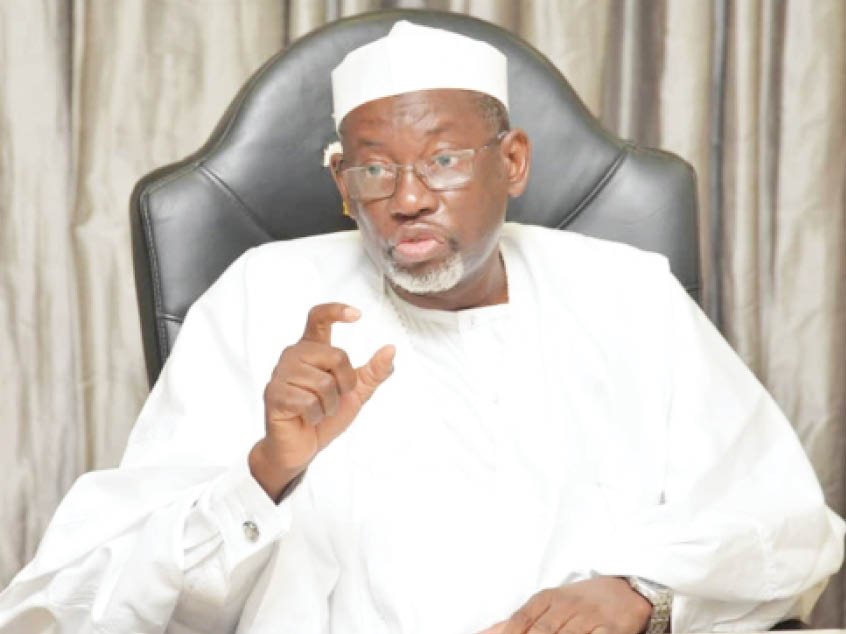The Jigawa State governor, Umar Namadi, is one of the few deputy governors that succeeded their bosses in the recent electoral cycle. In this interview with Daily Trust on Sunday, the governor speaks on many issues, including why priorities of some governors change after assuming office, his predecessor’s calculator policy to the management of resources, and his plans of addressing the perennial flooding in the state, among others.
How has it been in the first two months in terms of settling into the new role?
We thank God. Within the last two months, it has been challenging trying to reconcile demands with available resources. It has not been easy, but so far, so good.
You served four years as deputy governor before eventually emerging as the governor of the state. What was the transition like?
It was not difficult. As a deputy governor, I sat in for the governor on many occasions. I represented him on so many occasions. It was a good tutelage period. So, it is not something new to me. Maybe this is different now, in the sense that you are responsible for taking the decisions. I think it has been very good and smooth.
You campaigned with a 12-point agenda, cutting across different sectors like health, education and agriculture, among others. Since coming on board, have the realities of things you met on the ground changed the direction of your priorities?
Changes happen if the agendas are drawn offhand or as mere campaign issues. But like I always say, I have been part of this thing for the last eight years. I was the commissioner for finance as well as deputy governor. So, I know where it pinches. I know where the problems are and we will try to provide the solutions. I know where something good has been done and we will try to improve it.
The 12-point agenda was drawn on the basis of experience, so, it can’t be anything different. The 12-point agenda is based on the problems on ground and the needs of the people.
We are committed to the agenda, and that is what informed the decision to give copies to all our commissioners when they were sworn in.
We have also drawn Key Performance Indicators (KPI) which we will use to review the performance of each commissioner based on our agenda. It is not only the commissioners that would be assessed based on this, but all heads of ministries, departments and agencies because they all have a target. The KPI will be a means of measuring their performance. The 12-point agenda was carefully drawn and studied, so it will be carefully executed.
Reports recently indicated that you paid an unscheduled visit to a general hospital in the state and what you met there left so much to be desired. What went wrong during this visitation and what are the strategies you intend to put in place to ensure efficient health care delivery, not only in the cities, but also in the rural areas?
Health is part of our 12-point agenda. And looking at what we are supposed to have on ground for the people and what I have seen, these two are in conflict and I want to remove that conflict, which informed my reactions at that time. It is also to send a message to the people that this is unacceptable and it has to be changed. The issue is that health is wealth and part of our 12-point agenda is to deliver affordable health care to our people and ensure that people have access to health care facilities and are attended to and treated humanely.
One of the things we plan to do is to create a conducive environment for health workers. Already, the last administration established one health facility for each ward and we are in the process of meeting at least one general hospital for each of the 30 constituencies. We also have three specialist hospitals, one each for the three senatorial zones. So, the infrastructure is on ground and all we need is the human capital to deliver the services. This is why we are saying we do not have any reason not to give our people better health care services. That is why we are going around to see what is happening and correct the wrongdoings. We must make sure that when we say these medicines should be given freely to our people, it must be given freely; and any infringement will not be tolerated. In all the rural areas we will try to provide incentives for the health workers that will make them stay and work for our people.
Talking about human capital resources, the state is still ranked among the poorest in the country. Now, with the development in the country as it relates to the removal of fuel subsidy, which has further pauperised a large number of people, what is your government’s plan to bring people out of the poverty zone?
It is true that the removal of fuel subsidy has posed a lot of challenges to the people. There is a lot of anger and hunger as people are suffering, but as a government, we are doing our best.
The federal government is trying to do something, and at the state level, we are doing something. We want to ensure that the mainstay of this economy, that is farming, is sustained. We will encourage and support people to go to the farm, and luckily for us, Allah has blessed us with peace in this state. We will ensure that farming becomes a business in Jigawa State.
You can see the first step we have taken, which is that we have subsidised the price of fertiliser from N26,000 per bag to N16,000. Our people are very happy because not only have we subsidised the price, we have also taken measures to ensure that the fertiliser reaches the real people that need it. The way it is being sold in the villages is that the village head knocks on your door and asks if you need the fertiliser.
How were you able to knock out the middlemen that have been hitherto perceived as the bane of the success of such agricultural interventions in the past?
Yes, we have knocked them out, such that people are now afraid to buy above five bags because the order is that any car arrested with fertiliser above five bags would be impounded. We have talked to the National Union of Road Transport Workers (NURTW) on this and we have their buy-in. All security officers and our committee members are at alert. So, the sale of fertiliser is going smoothly and directly to people in villages.
Jigawa is becoming notorious for flooding, with people losing their lives and property, including thousands of hectares of farmlands. What are your strategies for solving this problem?
Even before the exit of the previous government, efforts had been in top gear to ensure that this issue of flooding becomes history in Jigawa State. For instance, we have established two committees. The technical committee is drawn from people with diverse backgrounds, including those with expert knowledge on water management, not just in the state but from other places. As part of the recommendation of this committee, the state government bought two excavators. The Hadejia Jamaare River Basin Authority also came with two more excavators, which are currently dredging the rivers. And at least, in the last three weeks, we have done about 36km at upstream and downstream.
Similarly, we embarked on building embankments in flood-prone areas. And as at the last three weeks, we have done about 85km, and I am sure that by now, they have reached about 120km and work is going on. This is to ensure that we reduce the impact of the flood on our people. I am sure that these measures will work for us to ensure that our people can do both dry and wet season farming successfully.
Are you looking towards toeing the path of the former governor of old Kano State, the late Audu Bako, who built many dams, which, to a large extent mitigated the impact of flooding in the state?
Dams are not easy as they are very expensive. But we have this as part of our long-term plans. And we are also looking at turning the problem created by the flood into a fortune for the state by harnessing the water from the downstream to the upstream part of the state so that it can be reserved, either in a dam or reservoir, which can be used in dry season farming.
Oftentimes, governors who rode to power through their bosses tend to be ‘tamed’ by their benefactors, especially in terms of appointments, contracts and other decisions, or if this does not materialise, they fall out. Do you entertain any fear in this regard?
I don’t think so because it has been a good relationship all through and I am sure it will continue. I have a lot of respect for him (Mohammad Badaru) as my boss and he also has a lot of respect for me as his follower. So, I think the mutual understanding is very good and I don’t think we are going to have any problem.
In the compilation of the ministerial list and other appointments at the national level, were governors consulted by President Bola Tinubu?
Of course, governors are carried along. So, Nigerians can be certain that the list will not cause any rancour among us.
Many people consider you as the calculator behind the Mr Calculator that your former boss, Mohammad Badaru has become synonymous with, especially because of your role, first as commissioner for finance, where you were credited with making Jigawa the least indebted state. Are there plans to continue on this path or people can expect a free flow of money?
The problem is that people are misperceiving what this calculator thing truly means. The calculator is to ensure the judicious use of resources, and that there is value for money. To ensure that every kobo is accounted for and as much as possible, this government would try to do what is right for the people.
The money is meant to be spent for the benefit of the people, so there is no reason to keep it. Even for the past government, it is not that the money was kept, we were prudent. That is why, for the last eight years, on the 25th of every month, Jigawa State would pay salaries, and on the 10th of the following month, we paid pension. This process continues. We have paid salaries already. And you know the Federation Account Allocation Committee (FAAC) is not out yet, but we have paid.
The issue is about planning for the betterment of the people. So, the calculator is not a negative thing. We have seen its benefit and that is why we are determined to continue with the calculator policy, but not at the detriment of the people.
Can this policy be adopted at the federal level?
Of course, it is good and will take the country to a greater height.

 Join Daily Trust WhatsApp Community For Quick Access To News and Happenings Around You.
Join Daily Trust WhatsApp Community For Quick Access To News and Happenings Around You.
